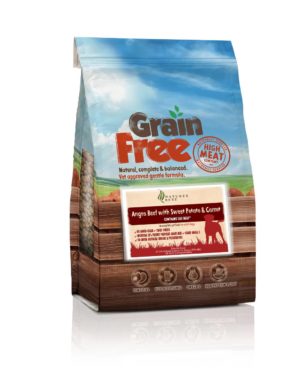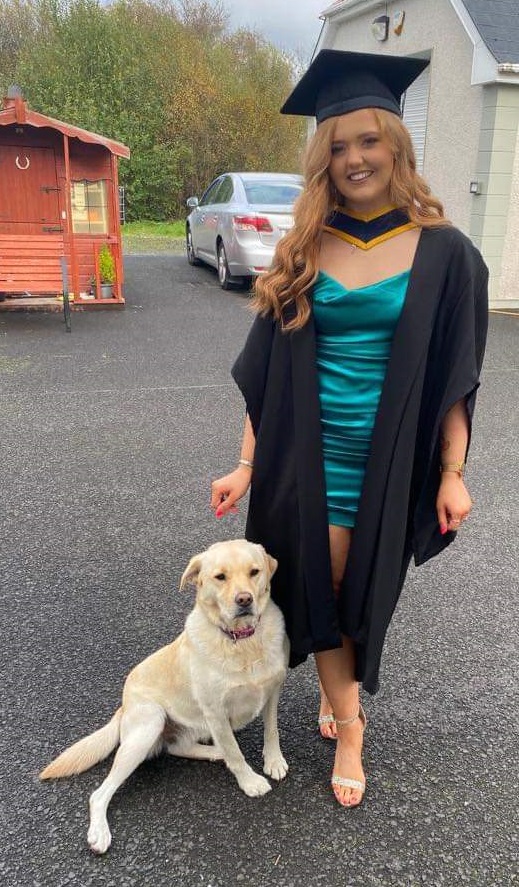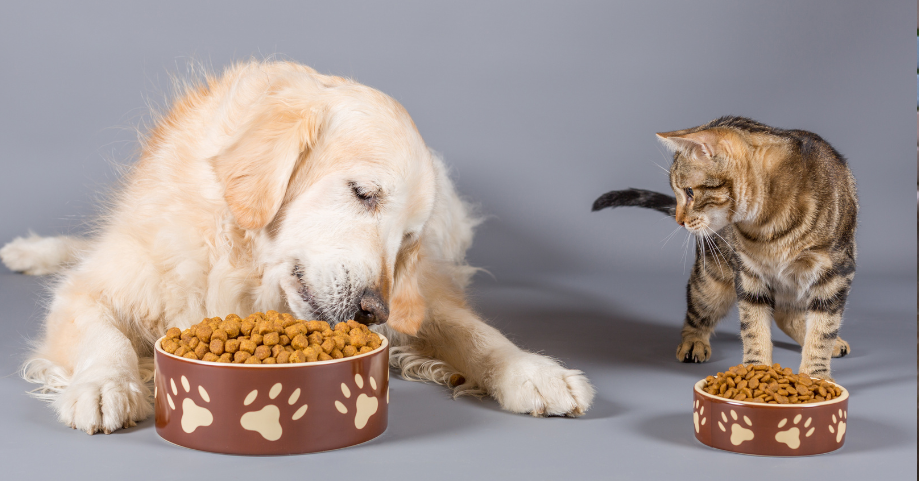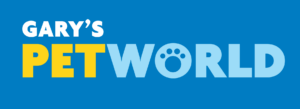Donegal Daily’s Pet Column is brought to you by veterinary nurse Michelle Kelly in association with Gary’s Pet World, Letterkenny Retail Park.
For all your pet food, health, accessories and toy needs, call instore or visit www.petworld.ie. Free shipping on orders over €29
Much like humans, animals need a balanced diet in order to stay healthy and function normally. In order for your pet’s diet to be balanced they require protein, fats, carbohydrates, vitamins, minerals and free access to water. Protein is essential for growth and development. Young animals, pregnant animals and sick animals need higher levels of protein than older and geriatric animals. Fats are essential to provide energy, keep skin and coat healthy and help with brain function. Carbohydrates are a source of quick energy allowing animals to be active. Vitamins and minerals are vital for many reasons. They allow muscle contraction, help fight disease and aid in the formation of strong bones, teeth, cells and healthy vision and blood clotting.
Providing your pet with a high quality diet is the best thing you can do to set them up for success. Malnutrition is a common issue seen in the veterinary clinic. Some people will class malnutrition as a pet which is underweight and in poor condition, but obesity is also malnutrition. It is important to choose your pet’s food correctly as there are so many options out there.
Dry Food/Kibble
The main option is dry food/ kibble. This is manufactured with the aim of containing a balance of all nutrients that pets require in order to be a complete diet. There are many different brands and within the brands there are various options too.
When choosing the correct one for your pet, you should consider their activity levels, breed, size and age. Depending on their breed, there are different requirements for pets according to their growth rate. For example, larger animals require different nutrient levels as they grow than smaller animals (according to their adult size) therefore dogs such as Great Danes require a specific diet to allow their bones and joints to develop appropriately in accordance with their adult size to prevent any issues from developing.
Not all animals should be put on adult diets at 12 months as they are not all fully mature at this age, some are not classed as adults until 18-24 months.
Get dry food/kibble at petworld.ie
Raw Diet
A controversial diet is the raw diet. It must be done correctly in order to be safe and balanced. A raw diet contains uncooked ingredients, not just raw meat but also uncooked vegetables and fruits. There aren’t any specific studies that have been carried out to suggest that it is a better diet but if this is a diet you feel is the most suitable for your pet it is important to do plenty of research to prevent any dietary deficiencies as this can be detrimental to their health.
Working with a veterinary nutrition specialist is highly advised in order to ensure that the diet is balanced and the correct one for your pet.
Some owners have reported some changes such as a glossier coat, more energy, producing less faeces and also their faeces being less pungent when fed a raw diet.
Considerations need to be taken with regards health and safety for all involved as, with any raw ingredients, there is the risk of parasites, such as worms and bacteria, such as e.coli, salmonella and TB which can be harmful for pets and humans.
Making sure pets are treated frequently for parasites and also possibly purchasing the raw diet from a manufacturer is advised as this ensures the food is tested and packaged correctly (in accordance with guidance from the Pet Food Manufacturing Association PFMA) making it less likely to make anyone ill from bacteria which can be passed from pet to human (by them licking you) and also cross contamination from preparation of the meals. The bones contained in the raw diets can be dangerous if they get lodged in the throat, intestines or stomach. They would need to be surgically removed. Splinters may also occur which can cause damage to the teeth or intestines.
Grain-free
Grain free is a relatively new diet which does not contain rice, corn, wheat or oats. Some choose this diet because grains do not contain starch, an ingredient in regular kibble which is linked to allergies.
Unfortunately not all grain free food is healthy. Studies have begun to show that replacement grains such as lentils, peas, white potatoes and quinoa can actually cause excess starch in the body and have been linked to a heart condition called Dilated Cardiomyopathy which leads to congestive heart failure.
Vets are encouraging pet owners to think carefully before choosing a grain free diet for their pet since allergies are more likely to be caused by protein sources (duck, chicken, beef) rather than grains. Cooked grains are 90% digestible by dogs and cats.

Nature’s Best Grain Free from www.petworld.ie
Find Grain-Free food here: https://www.petworld.ie/product-category/grain-free-dog-food/
Human Food
Cooked ‘human’ food may be suitable for some pets but again, you need to make sure that their diet is balanced.
We need to remember that our pets are not human and excessive amounts of fatty foods (bacon, sausages, etc.) can cause more harm than good. Pancreatitis is a very common illness which occurs as a result of excessive fat in the diet. It can make pets extremely sick resulting in them being admitted to the hospital. Pets get all of their nutritional requirements from a balanced, quality commercial diet therefore it is unnecessary to supplement with human food.
If you do decide to give them some human food, you must make sure to check that it is suitable for them as there are many foods that can be toxic (raisins, grapes, chocolate, palm oil found in white chocolate and peanut butters etc.)
Tinned/Packed Food
Tinned or packet food in gravy tends to be popular especially for cats and small dogs. This food can be great for pets who are older and may struggle with their teeth and for pets who may be ill and need something rich to encourage them to eat.
Wet food can be convenient too but it tends to be more expensive in the long run. A downfall of feeding wet food to pets is the occurrence of tooth decay as a result. Kibble helps to chip away at tartar on the tooth surface and lessen the likelihood of issues arising especially at a young age, but if they are fed solely a wet diet this does not happen, resulting in plaque build up which results in smelly breath, loose and decaying teeth and a sore mouth.
How to prevent upset tummies
Choosing a diet which suits you and your pet does not have to be scary or difficult. Your Vet or Veterinary Nurse can help to advise you on a suitable diet for your pet and assist in implementing a plan for you to change to a different food if you think their current food is unsuitable. Suddenly changing from one particular food to a different one can cause pets to become unwell so it is advised to do it gradually to prevent an upset tummy.
Treats
Much like with ourselves, treats should be given in moderation. If you feel bad not giving your pet a little snack while you eat, why not supplement this by weighing out their daily food allowance and hand feeding them throughout the day while training them? This allows you to ensure that they are not overfed. Simple things like them remaining in a sit or down while you leave the room and re-enter deserves a reward (and means you’re not tripping over them). Simple 5-10 minute sessions is all that they need at a time to keep them engaged and tire them out for you to get some tasks completed around the house.
For all your pet food, supplements and treats, visit www.petworld.ie or call into Gary’s Pet World Letterkenny.
Michelle Kelly qualified with a BSc Honours in Veterinary Nursing from LYIT. She works full-time in a clinic in Derry. She is the proud owner of a labrador named Nala, who goes everywhere with her, even to work.
As a dog owner in the North West, Michelle says she sees a lot of misunderstanding around owning a pet. With her first hand experience in a veterinary practice, she wants to give up-to-date facts and information to pet owners and to be a person people can turn to for help and advice, especially in the local area of Donegal.










